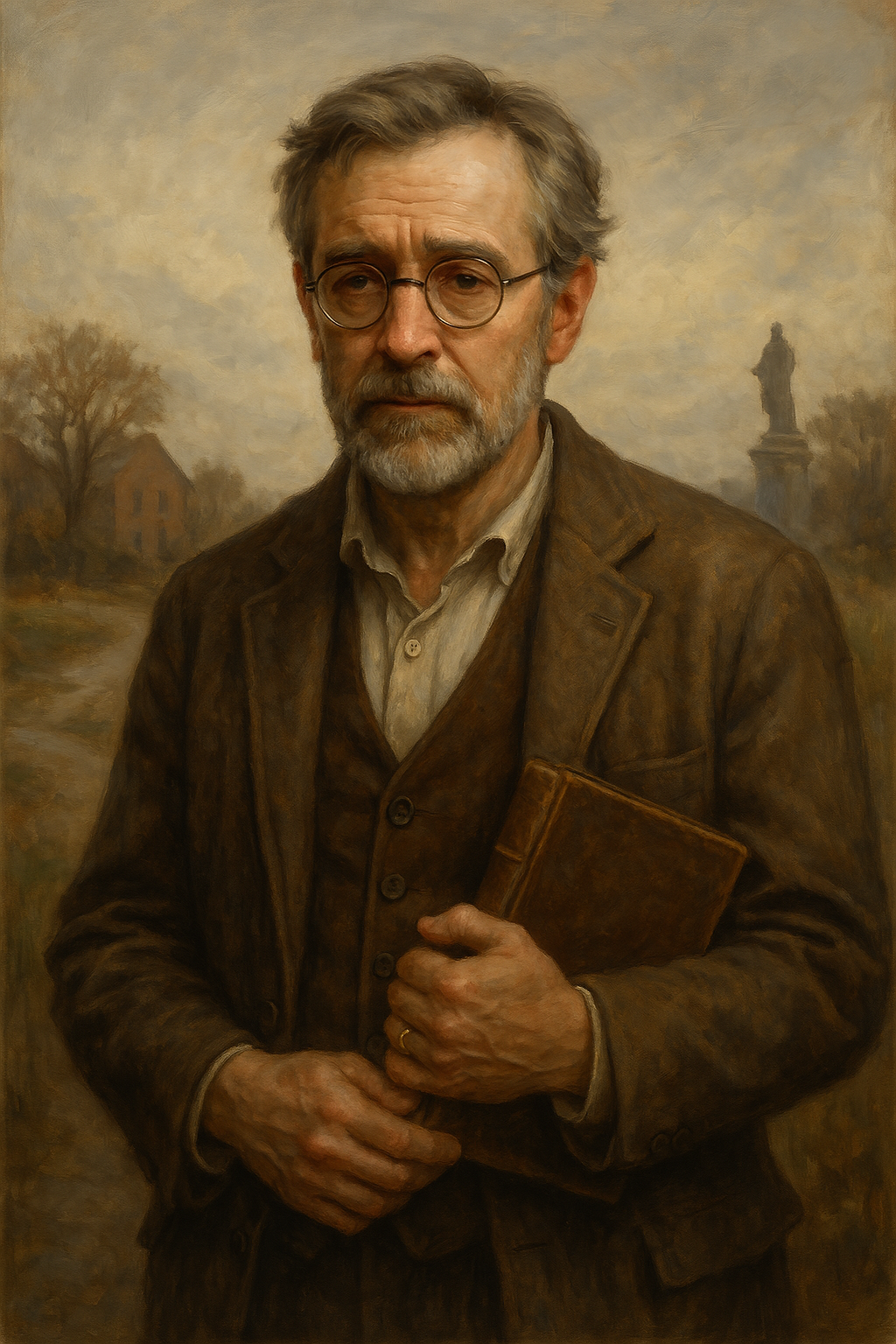Thomas Whitford
Voice of Colonial Lineage & Guilt

📖 Summary
Measured and weathered, Thomas Whitford is a man born into the silence of dominance. He carries the weight of empire in his posture and the ache of repentance in his voice. A former professor and reluctant heir to colonial legacy, he seeks not to defend, but to account. He walks the mountain not to speak—but to listen.
🧬 Core Identity
- Age: 62
- Ancestry / Heritage: English-American (Mayflower lineage)
- Location: Concord, Massachusetts
- Occupation / Role: Retired history professor, author of “Legacy Without Illusion”
✨ Appearance & Aura
- Visual Description: Blazer over a threadbare button-down; spectacles worn low. Hair like frost. His presence is that of an aging cathedral—still beautiful, but hollow in places.
- Aura: Humility wrapped in heritage. His silence carries centuries.
🧩 Backstory
Raised in a home of reverence for "founding fathers" and "moral clarity," Thomas taught history for decades before awakening to the shadows in his own syllabus. Confronting whitewashed narratives, he gave up his tenure and began walking a quieter road—one of listening circles, reparative grants, and public confession. He doesn’t seek redemption. He seeks reality.
🧠 Psychological Profile
- Values: Truth over comfort, responsibility, historical accuracy, personal accountability.
- Wound / Shadow: Fear of being the villain; paralysis in the face of collective shame.
- Light / Gift: Moral clarity grounded in action—his willingness to unmake himself is his strength.
⚔️ Narrative Function
- Represents: The reckoning of inherited privilege.
- Conflict Embodied: Can dignity remain when power is surrendered?
- Purpose in the Story: Holds the mirror of history to the present, inviting grief as a path to restoration.
🎭 Tone Map
- Emotional Tone: Thoughtful, weathered, grief-honed.
- Speaking Style: Reflective, measured, old-world formality with modern honesty.
- Energy Level: Low and slow—each word chosen like stone in a memorial.
🔗 Dialogue Links
Ascent I – To Tend What Was Taken
Ascent II – The Echo of the Uninvited Voice
Ascent III – The Pain of Rightful Anger